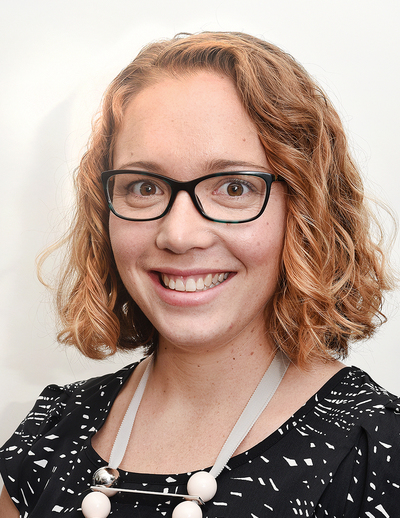Older hospital patients — having their cake and eating it too!

A 10-year journey to improve nutrition at the Royal Brisbane and Women’s Hospital.
When thinking about hospital mealtimes, it is usual to think of poor quality food and impossible-to-open packaging. Or to think about eating while half-lying in bed, where the ability to feed yourself is restricted by drips, bandages and other medical paraphernalia. This scenario is far too common. Add in common problems of ageing such as poor appetite and difficulty swallowing, and it is not surprising that most older people eat poorly in hospital, delaying their recovery and return home.
But there is another way. The team at the Royal Brisbane and Women’s Hospital have shown that it is possible to increase the nutritional intake of older people by 20% by doing things a little differently at mealtimes.
Long-term program
Over the past 10 years, a series of foodservice and mealtime improvements have been progressively introduced on the acute medical wards. High-calorie and high-protein foods are now standard offerings on the menu for all older inpatients. This means that a hot breakfast, extra desserts, creamy sauces and high-protein nourishing soups are offered daily to help with recovery. Small frequent meals are also on the menu, because patient feedback indicated that three big meals a day was too hard to stomach. Nourishing snacks like cheese and biscuits, yoghurts, milk drinks and even cake are now offered twice daily for all patients. Other changes to the foodservice system have also been met with high patient satisfaction, such as ‘same day menus’, increased variety in the menu and a spoken menu system.
At the same time as improving the hospital food, a program was underway to provide better care for older patients. It is well known that “the older you are, the worse the hospital is for you”. To make sure that this wasn’t the case at the Royal Brisbane and Women’s Hospital, a doctor, physiotherapist and dietitian began working together to develop the Eat Walk Engage program.
Eat Walk Engage is based on the knowledge that good hospital care for older people starts with good nutrition, early and regular mobilisation, and meaningful activities to keep the mind active. This program has been shown to decrease the amount of time older people spend in hospital and the likelihood of developing a new health problem as a result of being in hospital (eg, pressure injury, delirium or decline in function).
A new approach to mealtimes
So, what does Eat Walk Engage look like for older patients and their families at mealtimes? Ward staff now highly value the mealtimes and have worked to rearrange their routines to maximise the number of staff available to help patients to eat their meal. This often involves changing staff meal breaks and shuffling around other tasks in their busy days to create extra time to spend with patients during meals. Sometimes patients are brought together to share their meal at a communal dining table that is set up with homely touches such as a tablecloth and small vase of flowers. Patients and their families come together a few times a week for a social morning tea or ‘happy hour’ in a patient lounge or garden outside of the ward environment.
When the team monitored the nutritional intake of older people in their hospital over the 10-year improvement period, they were delighted to see that patients were now eating an average of 20% more energy and protein each day (900 kJ (215 Cal), 9 g protein). The percentage of older people eating less than their minimum nutrition requirements has almost halved (60% to 35%). Importantly, feedback from patients and their families has been overwhelmingly positive.
According to the team at Royal Brisbane and Women’s Hospital, the patient was the most important part of this change. Keeping the patient and their story at the centre of every improvement helped to bring the team together and made sure that the work they did focused on something important to the patient. And finally, being patient is key. Change is not easy, nor does it happen quickly. Know that you are in this game for the long haul, and that your effort and perseverance will result in meaningful outcomes for your patients, even if it is 10 years later!
Factors for success
|

Remote laundries target preventable disease in NT communities
A new community laundry has launched in Borroloola, part of a program seeking to curb preventable...
Eye care partnership looks to support First Nations optometrists
A new scholarship initiative will support Aboriginal and/or Torres Strait Islander optometrists...
A Day in the Life of a mobile optometrist
Linda Nguyen is the owner and founder of mobile optometrist practice Care Optometry and was a...




![[New Zealand] Transform from Security Awareness to a Security Culture: A Vital Shift for SMB Healthcare — Webinar](https://d1v1e13ebw3o15.cloudfront.net/data/89856/wfmedia_thumb/..jpg)
![[Australia] Transform from Security Awareness to a Security Culture: A Vital Shift for SMB Healthcare — Webinar](https://d1v1e13ebw3o15.cloudfront.net/data/89855/wfmedia_thumb/..jpg)




